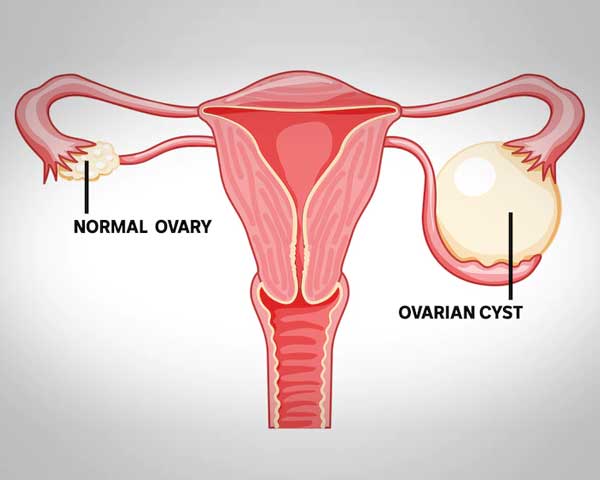Ovarian cysts are fluid-filled sacs that can form within or on the surface of the ovaries. While many ovarian cysts are harmless and often go unnoticed, some can cause discomfort and lead to more serious complications. Here is a detailed overview of ovarian cysts for your content:
Introduction: Ovarian cysts are common occurrences in women of reproductive age, and they typically form during the menstrual cycle. These cysts can vary in size, and while most are benign, some may cause health issues and require medical attention.
Types of Ovarian Cysts:
- Functional Cysts: These are the most common and often form during the menstrual cycle. They include follicular cysts and corpus luteum cysts, which usually resolve on their own.
- Dermoid Cysts: These cysts contain tissues like hair, skin, and teeth. While usually benign, they may require removal if they cause symptoms or complications.
- Cystadenomas: These cysts develop from ovarian tissue and can be filled with fluid or mucous. They are typically noncancerous but can grow quite large.
- Endometriomas: Resulting from endometriosis, these cysts form when tissue similar to the lining of the uterus grows outside the uterus, attaching to the ovaries.
Symptoms:
Ovarian cysts may be asymptomatic, but when symptoms arise, they can include:
- Pelvic pain or aching
- Bloating
- Changes in menstrual patterns
- Painful intercourse
- Abdominal fullness or pressure
- Nausea or vomiting
Diagnosis:
- Physical Examination: A pelvic exam is often the first step in detecting the presence of ovarian cysts.
- Imaging Tests: Ultrasound, CT scans, or MRI may be used to visualize the cyst and determine its characteristics.
- Blood Tests: CA-125 blood test may be conducted to rule out ovarian cancer, especially if the cyst is complex.
Treatment Options:
- Watchful Waiting: Small, asymptomatic cysts may be monitored without intervention.
- Medication: Hormonal contraceptives may be prescribed to regulate the menstrual cycle and prevent new cysts from forming.
- Surgery: In cases of large cysts, persistent symptoms, or suspected malignancy, surgical removal may be recommended.
Prevention and Management:
- Regular Check-ups: Routine gynecological examinations can help detect cysts early.
- Hormonal Management: Birth control pills may regulate hormonal fluctuations and reduce the risk of cyst development.
- Lifestyle Changes: Maintaining a healthy lifestyle, including regular exercise and a balanced diet, can contribute to overall reproductive health.
Conclusion:
Ovarian cysts are a common occurrence in women, and while most are harmless, some may require medical intervention. Understanding the types, symptoms, and treatment options is crucial for effective management. If individuals experience persistent symptoms or are concerned about ovarian cysts, consulting with a gynecologist is advisable for personalized guidance and appropriate care.
